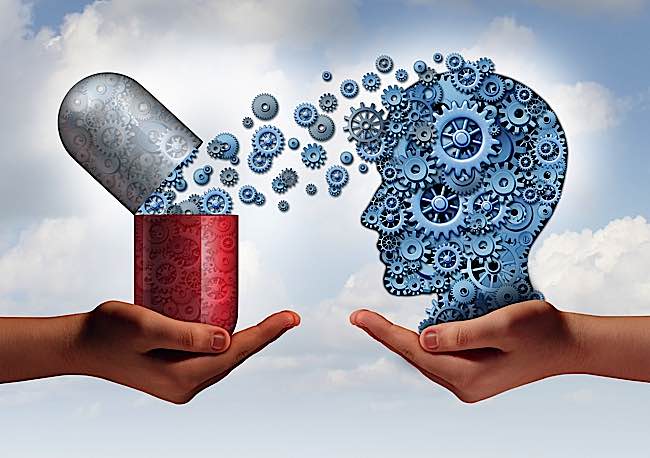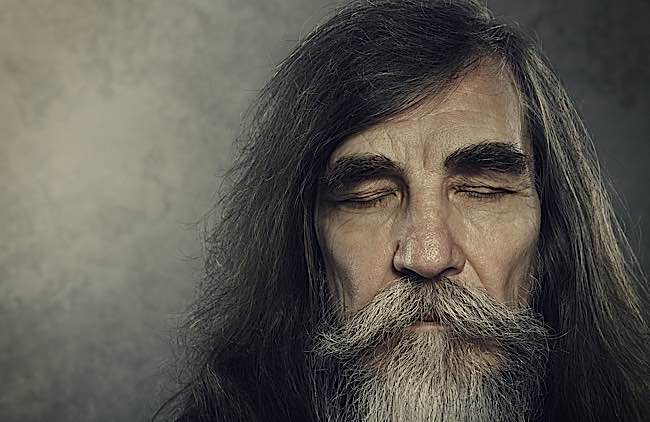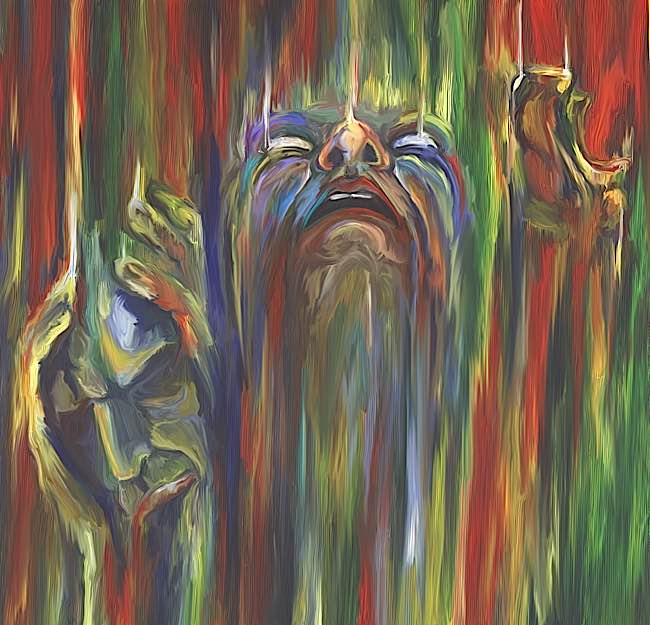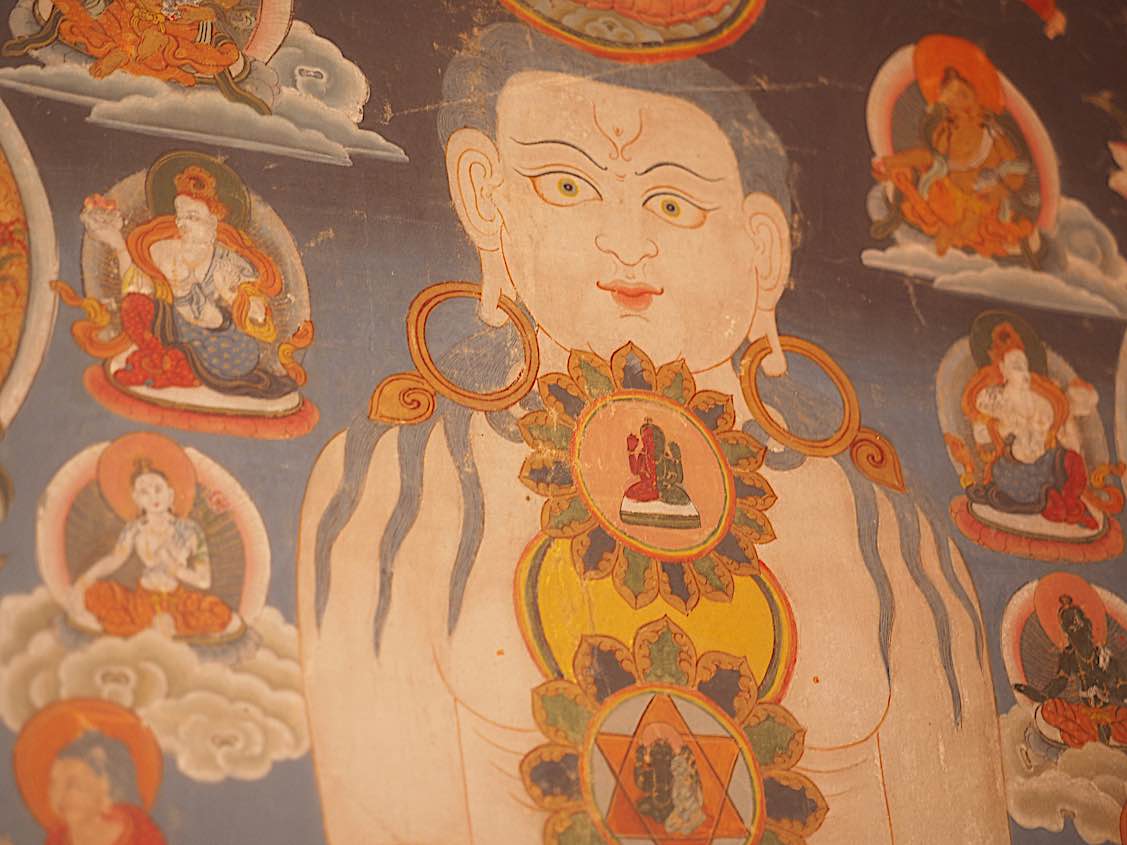Research Indicates Meditation May be As Effective as Medicine for Depression (JAMA Psychiatry Journal): Taking a Buddhist Approach to Mental Health
Guest Contributor Anne Green*
“Mindfulness-based cognitive therapy appears efficacious as a treatment for relapse prevention for those with recurrent depression, particularly those with more pronounced residual symptoms.” — JAMA Psychiatry Journal, Meta analysis report from randomized trials
By 2020 it is predicted that depression will be the biggest cause of disease in the developed world. With one in four people now expected to develop a mental health condition at some point in their lives, and the World Health Organization (WHO) acknowledging the huge increase in prevalence of mental health illness, it is a problem that needs to be tackled and addressed both by government planners and health care providers.

Provision for mental health care and support is a massively complicated issue, with many health insurance providers refusing to acknowledge or provide funding for certain conditions, and overstretched healthcare providers releasing those with mental health problems (and even those who have attempted to commit suicide) back into the public with little to no professional support. Putting aside the (frankly huge) issue of overstretched resources that is often held accountable here, and it seems clear that a new approach to the treatment of depression and other mental health problems is needed. Whilst prescriptions issued for antidepressants are increasing significantly year on year, the numbers of people suffering from depression are at an all-time high: clearly popping pills is not the answer. Medication serves to treat the symptoms of depression whilst masking the underlying cause, which differs from person to person, meaning that a meaningful cure is never found and that many people will find themselves in a situation where they are taking medication for the condition for the rest of their lives.
Meditation as Effective as Medication
Many Buddhists believe that meditation is just as effective as medication, and this is something that has recently been supported by comprehensive research. In what has been hailed as the largest-ever analysis of research on the subject, and recently reported in the JAMA Psychiatry journal, it was found that mindfulness-based cognitive therapy was just as effective at helping to overcome depression as the sole use of anti-depressants.

Researchers found that those individuals who meditated for just 30 to 40 minutes every day for an eight week test period had a five to ten percent reduction in the anxiety symptoms they demonstrated, and a 10 to 20 percent reduction in their feelings of helplessness and depression. Unlike antidepressants, meditation carries no known negative side effects, doesn’t require a prescription from a physician, is free (making it the most cost effective form of health care treatment available) and can be practiced anywhere and at any time.
Facing Your Own Maras: Buddhist Practices Can Help
“I see you, Mara. I know you. You have no power over me.” –– the Buddha
The fact is that mental health illnesses place a huge strain on an individual, affecting every aspect of their lives and relationships. Many mental health conditions can also have physical manifestations that are difficult to deal with. Meditation is good for both the body and the mind, regardless of your mental health status, but it is a particularly good technique for drawing depressives out of their funk. Regular exercise, spending time in nature and taking a healthy, balanced diet are all recommended for individuals suffering from depression, but perhaps the most significant change you can make is to consider practicing meditation and adopting a Buddhist worldview in order to learn to live, to laugh, to love, and the crawl back out of the long dark tunnel that is depression.

Depression is not something that can always be cured; even after his awakening, the Buddha still faced Mara, and it could well be that depression is the lifelong demon that has been sent for you to face. But as the Buddha faced his demons and stated: “I see you, Mara. I know you. You have no power over me” so too can you face your demons, knowing that when you do so they may well lose their power over you and you may finally be free.
The Clear Need for Holistic Care
Of course, this is not a call for individuals to throw their antidepressants away and focus solely on meditation instead. The decision about whether or not antidepressants are needed as part of a treatment plan should be made in conjunction with the support and advice of a qualified medical professional. (Or at least with their knowledge, if your research leads you to believe a medicine-free approach may the right approach for you). But what is clear is that antidepressants alone are certainly not the best approach to the treatment of depression either.

Perhaps the best way to treat depression effectively is with a holistic approach: taking care of the spiritual needs of both the body and mind, as well as using medication to cure any underlying neurological imbalances. Meditation is a wonderful way to increase insight into your life, focus on being at one with yourself and the world around you, and truly relax and unwind into yourself. Adopting mindful practices, focusing on the present moment and learning to appreciate every aspect of the world in which we live (from the changing color of the leaves during the fall to the sound of the pavement under your feet as you walk to catch a bus) can help us to realize both our significance and our insignificance in the world around us and is a sensation that many people find comforting.
*Note: This article is the author’s opinion, supported by independent data and not meant to be prescriptive or a replacement for consultations with your medical professional.
References
“Can Buddhism cure mental illness?”, Applied Buddhism, https://appliedbuddhism.com/2014/04/23/can-buddhism-cure-mental-illness/
JAMA Psychiatry “Mindfulness-Based Cognitive Therapy and the Prevention of Depressive Relapse.” https://archpsyc.jamanetwork.com/article.aspx?articleid=2517513
“A Buddhist Approach to Mental Illness”, Foundation for the preservation of the Mahayana Tradition, https://fpmt.org/mandala/archives/older/mandala-issues-for-1999/may/a-buddhist-approach-to-mental-illness/
“Compare Health Care” https://www.quotezone.co.uk/health-insurance.htm
“Popping pills for depression: A Buddhist view”, Inquiring Mind, https://www.inquiringmind.com/Articles/PoppingPills.html
“Changing a nation’s perspective on mental health”, Thomson Reuters Foundation, https://news.trust.org/item/20160802143007-wdpkm
“Buddhism and mental illness”, Patheos, https://www.patheos.com/blogs/americanbuddhist/2013/05/buddhism-and-mental-illness.html
“Meditation as effective as anti-depressants”, Forever Conscious, https://foreverconscious.com/meditation-as-effective-as-anti-depressants
“Meditation is ‘as effective as drugs for treating depression’: Mindfulness could be offered as an alternative to antidepressants, study claims”, Daily Mail, https://www.dailymail.co.uk/health/article-3047347/Meditation-effective-antidepressant-drugs-depression-treatment.html
“Mindfulness therapy works as well as anti-depressant drugs, major new study finds”, The Independent, https://www.independent.co.uk/news/science/mindfulness-therapy-depression-anti-depressants-mental-health-research-meditation-a7003546.html
More articles by this author
Search
Latest Features
Please support the "Spread the Dharma" mission as one of our heroic Dharma Supporting Members, or with a one-time donation.
Please Help Support the “Spread the Dharma” Mission!

Be a part of the noble mission as a supporting member or a patron, or a volunteer contributor of content.
The power of Dharma to help sentient beings, in part, lies in ensuring access to Buddha’s precious Dharma — the mission of Buddha Weekly. We can’t do it without you!
A non-profit association since 2007, Buddha Weekly published many feature articles, videos, and, podcasts. Please consider supporting the mission to preserve and “Spread the Dharma." Your support as either a patron or a supporting member helps defray the high costs of producing quality Dharma content. Thank you! Learn more here, or become one of our super karma heroes on Patreon.
Anne Green
Author | Buddha Weekly
















